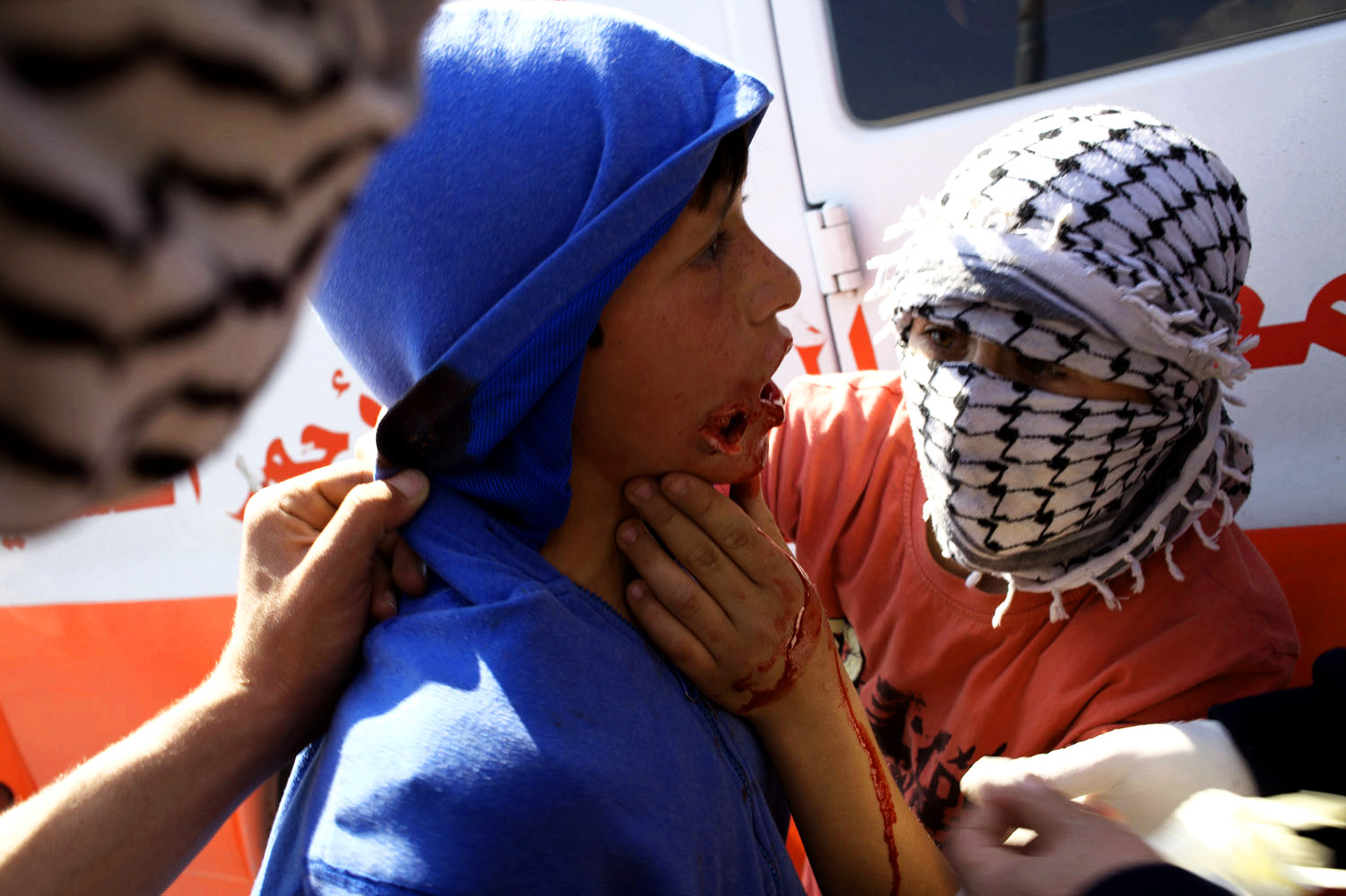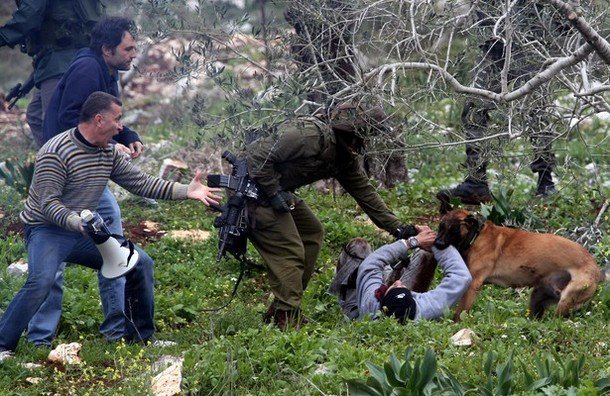Tag: An Nabi Saleh
-
Nabi Saleh: Israeli Soldiers Shoot 15 year old in the face with rubber coated steel bullet
by Jonathan Pollack 23 March 2012 | Popular Struggle Coordination Committee The bullet shot from a short distance hit the boy in the face penetrating his right cheek and piercing it. Israeli Border Police officers shot a rubber-coated bullet at 15 year-old Ezz Tamimi’s face from a distance of about 20 meters, during the weekly…
-
Settlers grab Palestinian water springs: U.N. report
by Jihan Abdallah 19 March 2012 | Reuters (Reuters) – Jewish settlers have seized dozens of natural springs in the occupied West Bank, barring Palestinians or limiting their access to scarce water sources, a United Nations report said on Monday. The U.N. Office for the Coordination of Humanitarian Affairs (OCHA) said it had surveyed 530…
-
When teargas and rubber bullets are not enough: Israeli soldiers release the hounds on unarmed Palestinian protesters
17 March 2012 | Ni’lin Village In Kufur Qaddoum, clashes between Israeli Border Police officers who shot tear-gas projectiles and rubber-coated bullets and local youth who threw stones at the forces developed. Roughly 15 minutes later – in a scene that seemed as if it was taking place in the American South of the…



